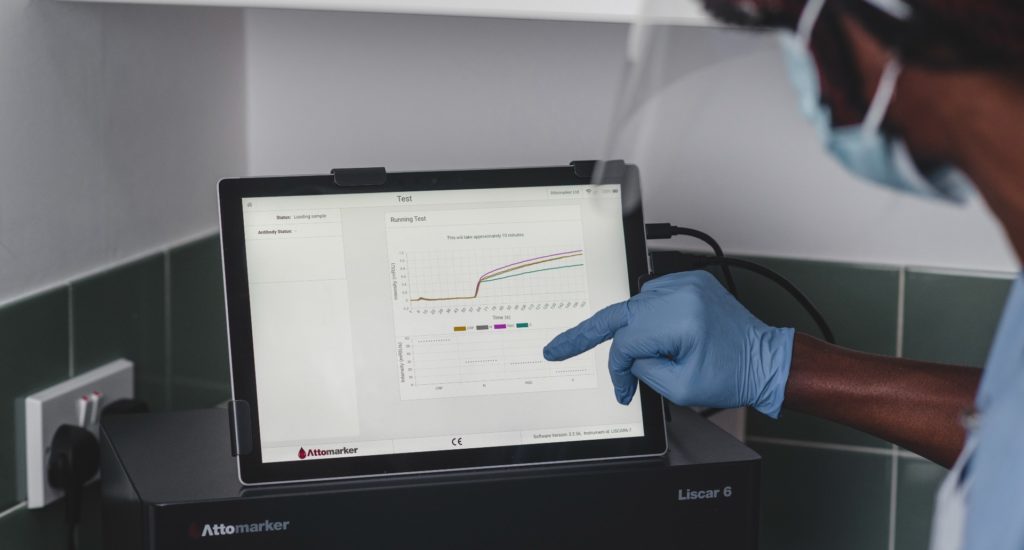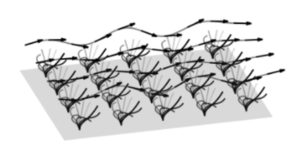University of Exeter welcomes proposals to boost spin-outs

Exeter spin-out Attomarker works on health challenges including Long Covid. Credit Steve Haywood
The University of Exeter has welcomed proposals to boost spin-out companies.
Spin-outs are start-up companies created with intellectual property (IP) from university research.
The Government has today accepted the recommendations of the Independent Review of University Spin-Out Companies, which looked at the most successful spin-out ecosystems in the UK and worldwide.
It states that the UK has an opportunity to create a world-leading innovation ecosystem that is “more ambitious than a replica of Silicon Valley”.
Professor Lisa Roberts, Exeter’s President and Vice-Chancellor, said: “The University of Exeter welcomes and supports this ambitious report, and we’re delighted the Government has endorsed it in full.
“The creation of spin-outs and knowledge exchange are central to our vision of building a greener, healthier, fairer world.
“Today’s announcement provides the necessary support for us to build on our strong record of success in creating spin-out companies; I am confident this activity will only grow in future.”
The review makes eleven recommendations, aiming to grow the economy, attract more talent and transform the UK into a science and technology superpower.
“Universities power innovation and are key drivers of economic success,” said Stuart Brocklehurst, Exeter’s Deputy Vice-Chancellor for Business Engagement and Innovation.
“Importantly, spin-outs benefit regions around the UK, providing high quality employment and strengthening local economies. This report lays the foundations for long term economic success across the country.”
University of Exeter spin-outs also welcomed the Government announcement.
Dr Jonathan Snicker, Executive Chair of Exeter spin-out Attomarker Ltd, said: “Spin-outs like Attomarker can disrupt established dogma and practice to make the world a better place.”
“We are working on rapid, handheld, multiplex diagnostics to enable early disease detection; especially crucial for conditions like sepsis, which takes the lives of 48,000 people a year in the UK alone, including a disproportionate number of children.”
“Attomarker instruments can provide rapid point-of-care testing, including in ambulances, reducing the dependency on, and time-constraints of, centralised laboratories and benefiting both developed and resource-limited areas.”
“Overall, these advancements lead to more efficient, cost-effective, and accessible healthcare solutions, positively impacting public health outcomes.”
Dr Rachel Fenton, Founder and Director of Kindling Transformative Interventions, commented: “Spin-outs really matter: they can be powerful vehicles for translating academic work into real-life impacts for real people.
“Our spin-out uses academic research into understanding how bystanders can be trained to act skilfully to prevent violence against women and girls, and inequalities in the workplace.
“We have built a business that has created jobs and has equipped thousands of people across the UK to act as skilled bystanders in preventing these harms.
“Without the spin-out as the vehicle, our research would never have had this impact at a societal level.”



